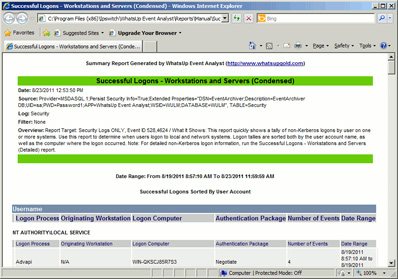Protect data and automate log management
Released today, WhatsUp Log Management 10.1.1 boasts pre-built, out-of-the-box reports, focused on complying with European-specific data protection regulations.

The reports ease key compliance requirements for businesses of all sizes, including the need to meet country-specific data protection requirements such as the United Kingdom Data Protection Act 1998; United Kingdom Corporate Governance Code 2010; German Federal Data Protection Act 2009; French Data Protection Act 2004 and French Financial Security Law 2003.
Organizations that collect personally identifiable data face a potential minefield as they have an obligation to confirm exactly what data is considered protected, what consent they need to obtain from data subjects, and what safeguards they should employ to protect that data from unauthorized use.
Ipswitch WhatsUp Log Management addresses these data protection requirements through:
- Automatic collection and consolidation of the large volumes of log data from all types of infrastructure and applications that contain employee or customer personal data
- Protection of archived log data, using cryptographic hashing to maintain log integrity
- Real-time monitoring and detection of suspicious events and messages to mitigate risk of unauthorised use of and security threats to personal data
- Deep forensic analysis in the aftermath of a security event to pinpoint exactly where a security policy failed
- Point-and-click reporting for critical errors or security auditing issues that relate directly back to the key European data protection legislation.
“Not every company has the luxury of being able to employ dedicated security professionals. Network admins are increasingly being asked to monitor security, yet they often drown under the deluge of logs generated by the modern business so have got into a dangerous habit of ignoring them,” said Susan Read-Miller, Principal Product Marketing Manager of Ipswitch’s Network Management Division. “WhatsUp Log Management can help them automate this process, thus not only protecting the business from potential breaches but saving them time and potentially hefty fines.”